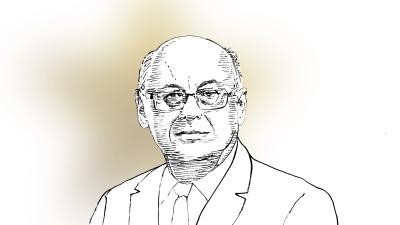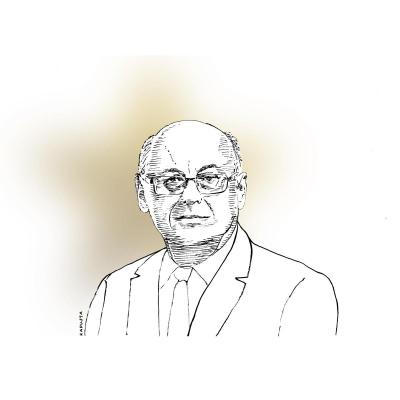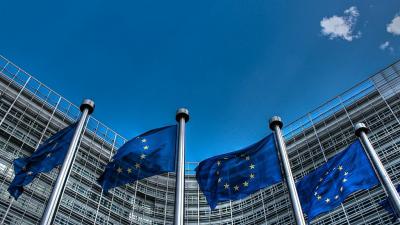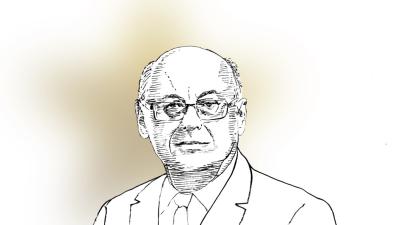No More Legal Formalism[1]
The essence of Poland’s conflict with the European Union concerned the extent to which the parliamentary majority could make political decisions that faced criticism and resistance from the courts and whether European law provided for it.
After 1989, Poland established a system in which political power was dispersed and subject to the influence of external centres. A significant portion of the so-called civil society was financially supported from abroad, foreign media corporations took over a considerable part of the media, and the entire transformation took place with a strong influence of foreign capital and was monitored by Western political centres. These influences were not considered harmful or limiting to Polish democracy, since they were understood as an obvious consequence of aligning – according to the will and desire of the majority of Poles – with the democratic "West”, which set the standards for democracy and liberalism. Accepting the goal also meant accepting the methods. The legal community survived the period of political transformation without personnel changes, without vetting or checking the accountability of judges for years of oppression. Additionally, a decision was made to adopt a system of appointing judges largely based on self-recruitment. In large part, it was the judges themselves who decided who would become a judge.
The Constitutional Tribunal stood as a guardian of a very mild political transformation. Let us recall that it was the Constitutional Tribunal that halted the attempt at a more decisive vetting in 2007, deeming the then-existing law unconstitutional in many aspects. It was written then: “By eliminating the legacy of totalitarian communist systems, a democratic state based on the rule of law must employ formal and legal means characteristic of such a state. It cannot use any other means because then it would be no better than the totalitarian regime it seeks to eliminate. A democratic state based on the rule of law has sufficient means to ensure justice is served and those guilty will be punished. However, it cannot and must not satisfy the desire for revenge instead of serving justice. Instead, it must respect human rights and fundamental freedoms, such as the right to a fair trial, the right to be heard, and the right to defence, and apply them also to those individuals who did not uphold them when they were in power.”[2]
After 2015, a significant portion of the legal community, especially judges, found themselves in a political conflict with the government and the parliamentary majority, whose agenda envisioned a profound political change and stemmed from criticism of the hitherto prevailing strategy for the development of Poland. However, the conflict between “democracy” and “constitutionalism”, between the political power elected in democratic elections and legal milieus in Poland, was not merely an internal conflict, as in stronger European countries. From the very beginning, it was a conflict with external, EU institutions. The Commission reacted according to the philosophy of the new constitutionalism, defending fiercely and sharing the opinions of liberal legal circles. However, the fact that it treated the provisions of the Polish Constitution very selectively revealed that the essence of the dispute was political. In fact, the PiS government was attacked because it was regarded as “anti-European”, i.e. it did not fully agree with EU policy and was sceptical about further integration. Had it been “pro-European”, it would have ended – as many examples show – at most with a mild reprimand and a reminder that the rule of law is very important.
It seemed that the October 2023 elections would end the tension between democracy and constitutionalism in Poland. Voters voted for the “pro-European” defenders of the “rule of law”. However, there was an unexpected change of action and a swap of roles. The new government took steps that even some previous defenders of the “rule of law” saw as breaking the law and violating the constitution. The whole discourse has changed. Most defenders of the rule of law and critics of “majority democracy” began to proclaim views quite the opposite of what they had previously claimed. They have now come to believe that politics in certain situations must remain above the law, and the parliamentary majority can violate the rules and principles of law. This is to be the case in a situation of “restoring the rule of law”. In this transitional era, rules are not to apply, and the “restoration” has to be conducted by violating the law and even using authoritarian methods.
Klaus Bachmann was the first to write explicitly about this already on 21 October in the Berliner Zeitung: “If the new government really wants to govern, it must direct the entire force of the police state that PiS (Law and Justice Party) has built against PiS and the president.”[3] In other words – to dismantle in the future the “police state” that PiS allegedly built, to govern effectively and return to a “democratic state under the rule of law” in the unspecified future, one must use the methods of a police state.
Renowned ethics Professor Magdalena Środa confessed on social media: “Although I consistently advocate for the rule of law, I cannot resist arguments related to the necessity of forcibly installing democracy. Unless it can be done otherwise. And sometimes it can’t. PiS established its authoritarian rule by force; its “rule of law” was the result of the parliamentary voting machine. Eight years of rule were based on lawlessness. It is naive to think (and I hear many such voices) that today, democracy can be established purely by democratic means.”[4]
Lawyers themselves, and eminent ones at that, have also begun to talk about the need to move away from the law. Marek Safjan, a judge at the Court of Justice of the European Union (CJEU), stated in Gazeta Wyborcza that “We need to break free from the trap of legal formalism.”[5] Prof. Mirosław Wyrzykowski, former judge of the Constitutional Tribunal: “The Constitution cannot be an obstacle to the restoration of constitutional order.”[6] Another authority of the political camp that formed the ruling coalition, Prof. Wojciech Sadurski, warned in an article published in the same newspaper that “the constitution is a trap”[7], and David Kulpa, a younger generation lawyer, citing Carl Schmitt, added that “If someone really takes the interest of the state seriously, they know that above the normative order defined in the Constitution, there is a concrete order dictated by the raison d’état.” He argues that in the extraordinary situation we find ourselves in, “the Polish raison d’état is to restore a democratic rule of law, including freedom of speech in public media.”[8] Thus, it can be said that also in Poland, at least temporarily, Kelsen’s theory is in retreat and history seems to concede Schmitt’s point.
Donald Tusk himself brought the matter down to the understanding of the law and its interpretation in one of his press conferences: “When it comes to sorting out the situation in public media, the matter is simpler than anyone thinks. It does not require mysterious actions, and no one expects soft solutions. Everything will be in accordance with the law as we understand it.” It is no longer the Constitutional Tribunal that is supposed to decide what is legal or not, but the political environment. This sentiment is further echoed in a post on the X platform on 14 January 2024: “Just as the occupation of Poland by PiS has ended, so will the occupation of state offices by PiS. Only the reputation of the occupiers will stay with them for a long time.” If we take these words seriously, they imply that the current Prime Minister of the Polish government does not recognise the results of democratic elections in 2015 and 2019, questions the existence of a legitimate Polish government from 2015-2023 and other institutions, as well as legal regulations from that period. It is as if Poland did not exist as a state during 2015-2023. Consequently, one must acknowledge that the “occupiers” and their collaborators have no right to exist in public life, that the laws enacted during that period are not binding, and, as a result, the government can do whatever it likes to restore “the rule of law”.
In addition, as Jan Rokita rightly pointed out, this is probably the first time that some courts are being disqualified as courts.[9] This disqualification of a court as a court, however, is very often done by reference to EU opinions and decisions.
The policy of “restoring the rule of law” by the new government has gained the recognition of the European Commission, which does not see a problem with it being carried out through methods inconsistent with the existing law.
Supreme Court Judge Kamil Zaradkiewicz wrote on the X platform, “Poland is facing a very dangerous trend, since a group of judges and the politicians of the current government who support them have discovered a new way of pursuing their own goals – namely to ensure control by ignoring/not recognising the rulings of those courts which are, in their opinion, 'incorrect', which has been done with impunity in result of numerous legal and media procedures. This means, in particular, de facto delegalisation of the Constitutional Tribunal and the Supreme Court (in their new formations). Of course, these actions have no legal basis whatsoever, but a semblance of these bases has been created in the form of theses from the CJEU’s jurisprudence – they have become, for the usurpers, peculiar 'meta norms' of the state system.”[10]
It can be said that, for the first time, there is a reconstruction of the legal order of a state belonging to the EU in accordance with the recommendations and decisions of EU institutions (at least according to the declarations of those in power). The ruling camp agreed that the existence or non-existence of certain state institutions, such as chambers of the Supreme Court, should be determined – or at least co-determined – by EU institutions, including the European Court of Justice and the European Commission.
But what happened after 13 December 2023 shows that the victory of the EU’s “constitutionalism” gives pro-European politicians in Poland a free hand to violate Polish law, i.e. to act on a national level against the principles of this philosophy, as long as it abides by the European treaties.[11] In this way, the treaties become this “invisible” constitution of Poland, and its interpretation is to be dealt with by European institutions according to their understanding of European values.[12] The institutions of the Polish state, including the Constitutional Tribunal, do not have such a right.
At the national level, on the other hand, the government majority does not have to respect the “local” legal order. And it is only now that we have a “majority democracy” in Poland, in which the “right”, because supported by the EU elite, the majority does not have to care – at least for the time being – about “legal formalism”, and Polish law in general, as long as it recognises EU “constitutionalism”.
[1] An excerpt from a larger text to be published in the „Horyzonty Polityki” journal issued by Ignatianum University.
[2] Judgment of 11 May 2007, K 2/07; https://trybunal.gov.pl/fileadmin/content/omowienia/K_2_07_PL.pdf.
[3] Quoted after DoRzeczy website - https://dorzeczy.pl/opinie/495237/panstwo-policyjne-przeciw-pis-niemiecki-komentator-radzi-opozycji.html
[4] https://www.facebook.com/Magdalena.Sroda/?locale=pl_PL
[5] Marek Safjan, Rule of law without delay. It is necessary to break out of the trap of legal formalism, Gazeta Wyborcza of 28.11.2023.
[6] Mirosław Wyrzykowski, No two legal orders. New authorities raise a constitutionally bankrupt country, OKO.press 26. 01. 24 https://oko.press/prof-wyrzykowski-nie-ma-dwoch-porzadkow-prawnych.
[7] Wojciech Sadurski, PiS uses the constitution as a trap for democrats, Gazeta Wyborcza of 2.01.2024.
[8] Dawid Kulpa, Abolition of TVP. A defence of the constitution or a threat? Lawyer has no doubts, Business Insider, 28 December 2023.
[9] Jan Rokita, Proceduralism and violence, Political Theology, 09. 01.2024.
https://teologiapolityczna.pl/jan-rokita-proceduralizm-i-przemoc
[10] The account has been suspended.
[11] During her visit to Poland at a press conference on 20 December 2023, Vera Jourova, Vice-President of the European Commission in charge of the rule of law, said this explicitly, “Of course, any Polish government can reform the justice system, however, European treaties must be respected during this reform” - see https://dorzeczy.pl/opinie/528222/bodnar-na-konferencji-z-jourova-to-dla-nas-zaszczyt.html.
[12] On the philosophical shortcomings of basing law on values: see Böckenförde, Zur Kritik der Wertbegründung des Rechts, in: idem, Recht, Staat, Freiheit Studien zur Rechtsphilosophie, Staatstheorie und Verfassungsgeschichte, Frankfurt am Main, 1991, pp- 67-91.














Comments (0)